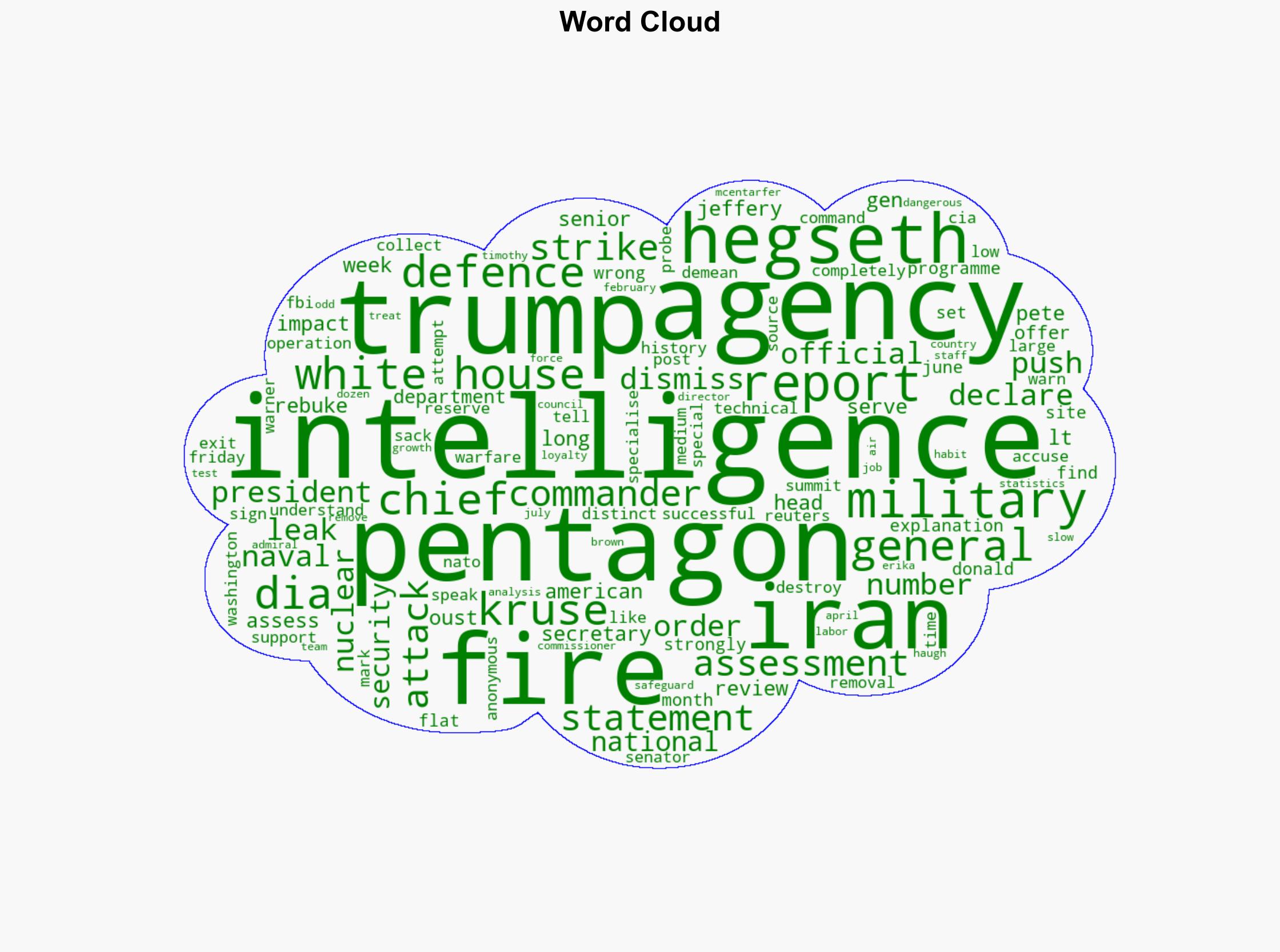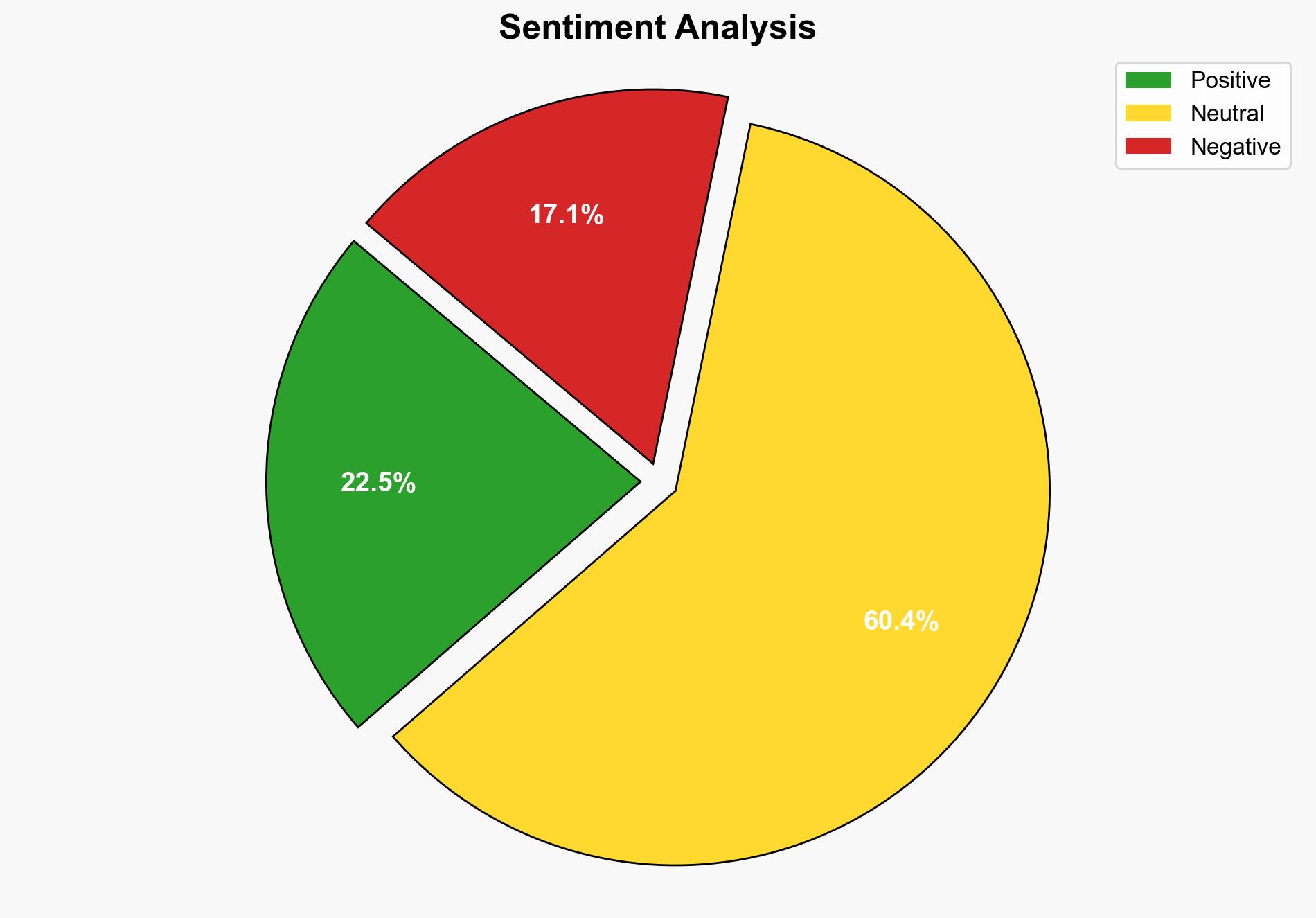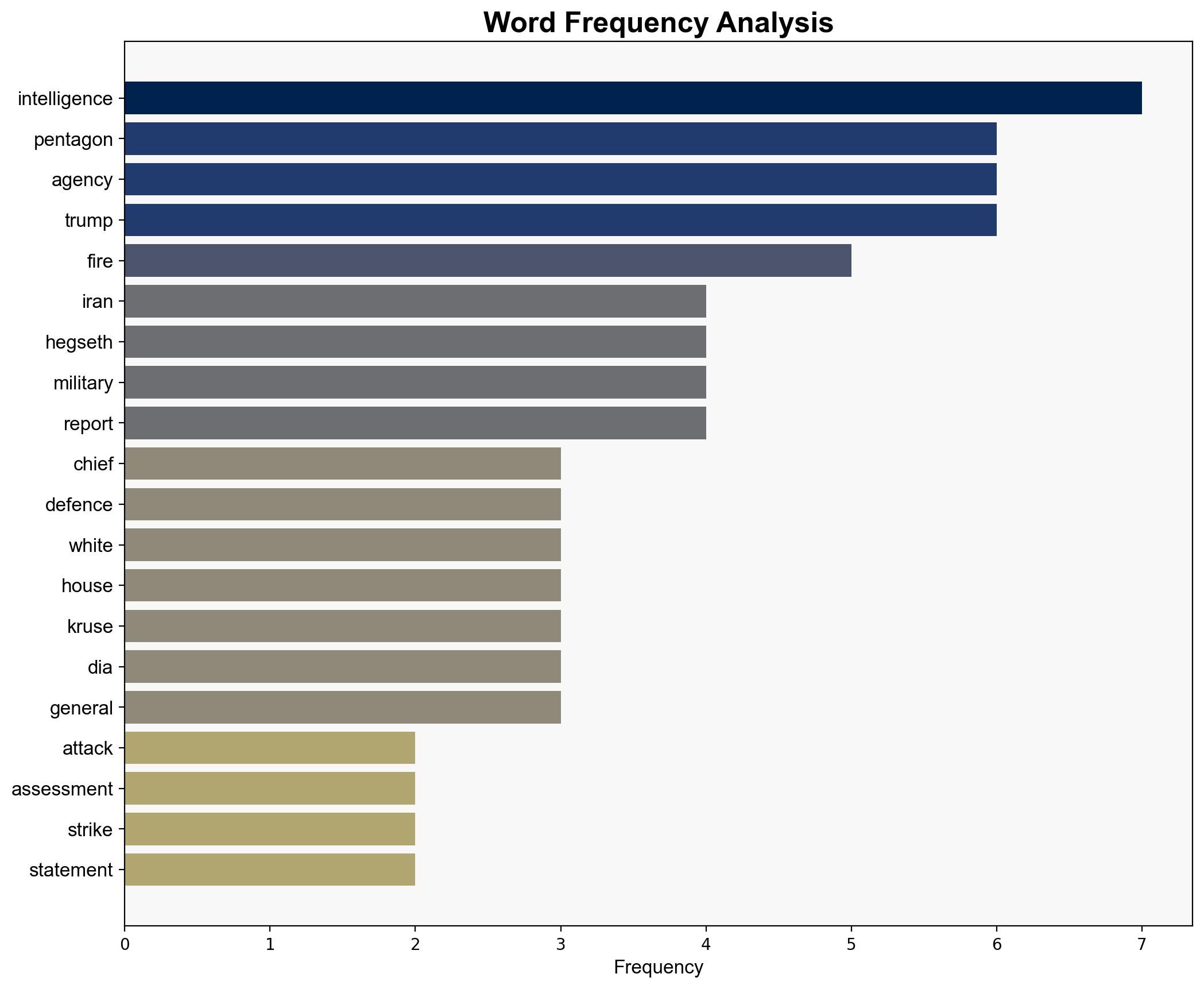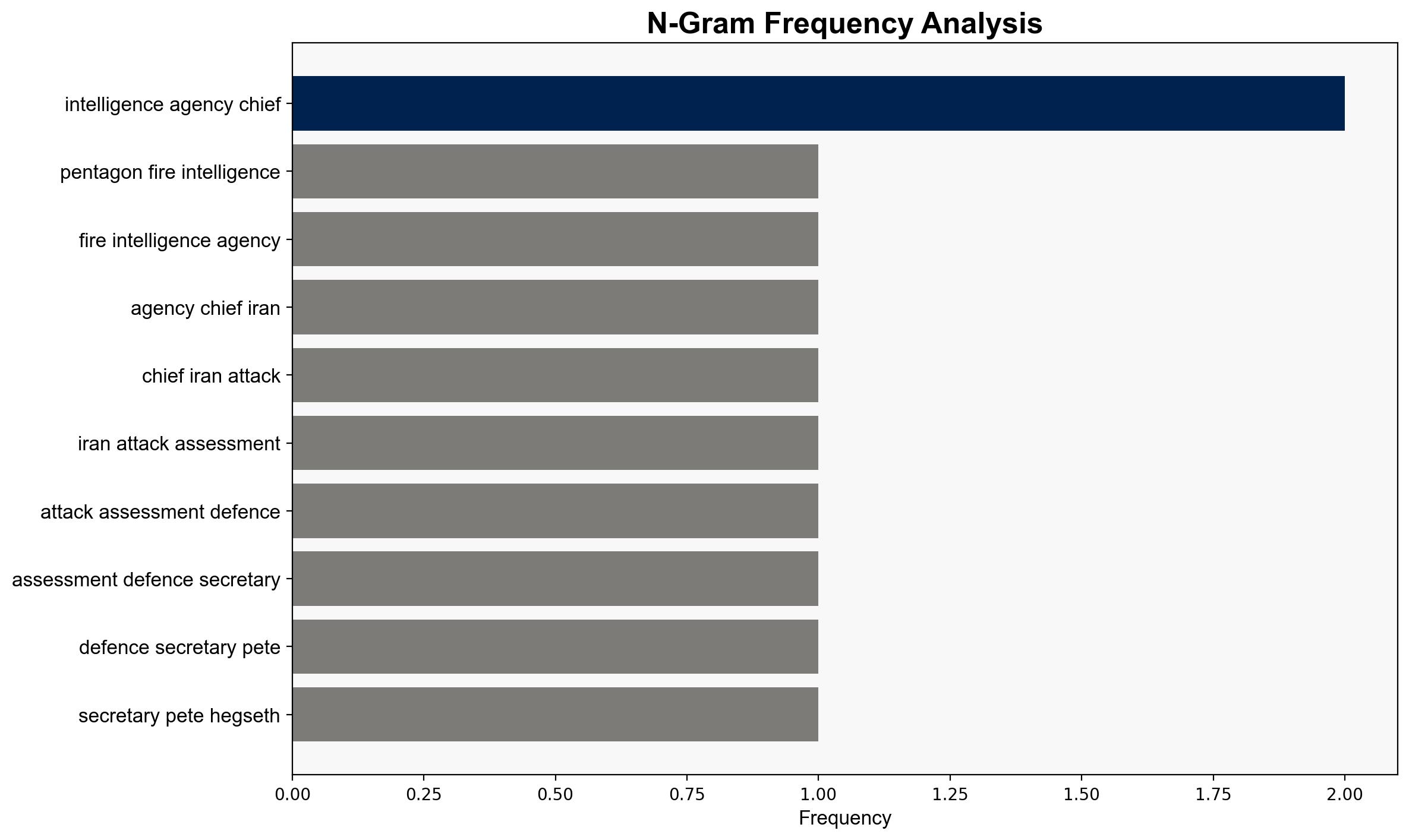Pentagon fires intelligence agency chief after Iran attack assessment – BBC News
Published on: 2025-08-23
Intelligence Report: Pentagon fires intelligence agency chief after Iran attack assessment – BBC News
1. BLUF (Bottom Line Up Front)
The firing of the intelligence agency chief following an Iran attack assessment suggests internal discord regarding intelligence interpretation and its impact on policy decisions. The most supported hypothesis is that the dismissal was politically motivated to align intelligence narratives with executive preferences. Confidence in this assessment is moderate due to limited transparency on the decision-making process. It is recommended to enhance oversight mechanisms for intelligence assessments to ensure integrity and prevent politicization.
2. Competing Hypotheses
1. **Political Motivation Hypothesis**: The firing was driven by the need to align intelligence assessments with the administration’s policy narrative, particularly concerning Iran’s nuclear capabilities.
2. **Performance-Based Hypothesis**: The dismissal was due to perceived failures in intelligence accuracy or security breaches, such as leaks, which undermined trust in leadership.
Using ACH 2.0, the Political Motivation Hypothesis is better supported by patterns of previous dismissals linked to intelligence disagreements and the timing of the firing following public criticism of the assessment.
3. Key Assumptions and Red Flags
– **Assumptions**: The administration seeks to control intelligence narratives; intelligence assessments were accurate but politically inconvenient.
– **Red Flags**: Lack of official explanation for the dismissal; pattern of dismissals following intelligence disagreements; anonymous sources suggesting political pressure.
– **Blind Spots**: Internal Pentagon deliberations and the exact content of the disputed intelligence assessment remain opaque.
4. Implications and Strategic Risks
– **Geopolitical**: Potential erosion of trust in U.S. intelligence assessments by allies, impacting international cooperation.
– **Cybersecurity**: Increased risk of intelligence leaks as internal dissent may grow.
– **Psychological**: Morale within intelligence agencies could decline, affecting operational effectiveness.
– **Escalation**: Misalignment between intelligence and policy could lead to miscalculations in foreign policy, particularly with Iran.
5. Recommendations and Outlook
- Enhance transparency and accountability in intelligence assessment processes to prevent politicization.
- Establish independent review panels for contentious intelligence reports to ensure objectivity.
- Scenario Projections:
- **Best Case**: Strengthened oversight leads to more credible intelligence assessments and improved policy decisions.
- **Worst Case**: Continued politicization results in significant intelligence failures, damaging U.S. strategic interests.
- **Most Likely**: Incremental improvements in oversight, with ongoing challenges in maintaining intelligence integrity.
6. Key Individuals and Entities
– Jeffery Kruse
– Pete Hegseth
– Donald Trump
– Mark Warner
7. Thematic Tags
national security threats, cybersecurity, counter-terrorism, regional focus




